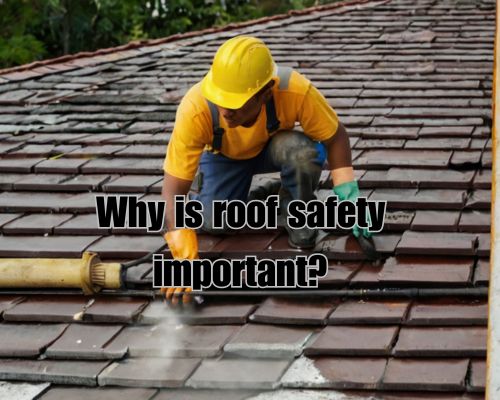In Warragul, Victoria—where the crisp country air meets growing suburban infrastructure—there’s a rising demand for skilled tradespeople. Among these, plumbers stand out not just for their essential services but also for their earnings potential. This naturally raises a question that echoes from trade school classrooms to bustling construction sites:

What country has the highest paid plumbers?
It’s more than just trivia—it’s a question with career, migration, and financial implications. With Plumber Warragul, let’s explore where plumbers earn the most globally, why that is, and how this insight applies to tradespeople and aspiring apprentices in Warragul, Australia.
Why Plumbing Pays Big in Some Countries
Before we crown the top-paying country for plumbers, it’s important to understand what drives high wages in the plumbing industry globally. Salaries can vary dramatically based on:
- Cost of living
- Unionization levels
- Government regulations
- Licensing requirements
- Demand for skilled labor
In developed nations where plumbing codes are strict and infrastructure is aging (or expanding), demand for skilled plumbers remains consistently high.
The Global Leader: Switzerland
According to numerous salary comparison platforms like SalaryExpert and PayScale, Switzerland consistently ranks as the country with the highest paid plumbers.
Why Switzerland?
- High cost of living: Cities like Zurich and Geneva are among the most expensive globally.
- Strong vocational training: Swiss plumbing apprenticeships are rigorous, and qualified tradesmen command respect—and higher rates.
- Labor shortages: The limited workforce inflates demand and, therefore, wages.
💧Average Annual Salary: CHF 80,000 to CHF 110,000 (AUD $135,000 – $185,000)
Notably, these figures reflect both employed and self-employed plumbers, with the latter potentially earning more depending on specialization and clientele.
Close Contenders: USA, Norway, Australia
United States
In the U.S., especially in union-heavy states like Illinois or California, plumbers can earn upwards of USD $75,000 annually (AUD ~$115,000). Licensing, overtime, and large-scale projects (think New York City high-rises or LA remodels) drive these numbers up.
Norway
Norway mirrors Switzerland in its wage policies. With a robust welfare system and high living costs, skilled trades enjoy premium compensation. Norwegian plumbers often earn the equivalent of AUD $120,000 per year.
Australia (Yep, We’re Up There Too!)
In major urban centers like Sydney or Melbourne, master plumbers can bring in over AUD $100,000 annually, with commercial specialists or business owners earning significantly more.
But what about regional hubs like Warragul, Victoria?
Plumbing Wages in Warragul, Australia
Warragul, part of the West Gippsland region, is seeing steady population growth. With new housing developments and ongoing infrastructure upgrades, local plumbers are finding plenty of work.
What Can You Expect in Warragul?
- Apprentices: $20,000–$40,000 per year (depending on year and TAFE progress)
- Qualified Plumbers: $70,000–$90,000 annually
- Self-Employed/Master Plumbers: $100,000+ (especially with niche services like solar hot water, greywater systems, or commercial fit-outs)
💡Pro Tip: Due to regional skill shortages, local plumbing businesses in Warragul often offer flexible hours, bonuses, and profit-sharing to retain skilled workers. For more, visit https://plumberwarragul.com.au/.
The Value of Plumbing in Warragul’s Housing Market
Warragul’s property market is booming. With the median house price hovering around $650,000 and a surge in family home builds, the demand for compliant, energy-efficient, and tech-integrated plumbing systems is growing.
New builds and renovations in areas like Drouin, Neerim South, and Yarragon are driving service demand for:
- Rainwater tank systems
- Stormwater management
- Smart home water efficiency
- Septic system upgrades
Plumbers who upskill in these areas—especially those offering green and sustainable solutions—are commanding premium rates across West Gippsland.
Local Licensing and Career Pathways
How to Become a Plumber in Warragul:
- Certificate III in Plumbing via TAFE Gippsland (Warragul Campus)
- Four-year apprenticeship
- Registration with the Victorian Building Authority (VBA)
Advanced licensing allows for gas fitting, drainage, roofing, and mechanical services—each adding earning potential.
💠Consider this: The more licensing categories you hold, the more services you can legally offer—meaning more invoices, more bookings, more cash flow.
Should You Consider Moving for Higher Wages?
Sure, moving to Switzerland or Norway might sound glamorous (especially with those juicy pay packets), but consider the real costs:
- High taxation
- Language barriers
- Licensing recognition challenges
- Cost of relocation and living
On the flip side, Australia’s plumbing standards are internationally respected, making local plumbers well-positioned for overseas migration. But don’t overlook the opportunities right here in Warragul—where the work-life balance, cost of living, and tight-knit community offer trade professionals something money can’t buy.
Key Takeaways
- Switzerland currently holds the crown for the highest paid plumbers globally, with salaries reaching up to AUD $185,000.
- Australia, including regions like Warragul, remains competitive—especially for self-employed plumbers and those with advanced licenses.
- Local factors like population growth, regional development, and environmental regulation mean that Warragul plumbers are in high demand.
- Plumbers with a focus on sustainability and smart systems are carving out lucrative niches in the West Gippsland area.
Final Thought: Plumbing Isn’t Just a Trade—It’s a Ticket
Whether you’re in trade school, mid-career, or running your own plumbing business in Warragul, this is more than just a job. It’s a global profession with passport potential. And while the Swiss Franc may outpay the Aussie dollar, Warragul offers a growing market, less competition, and real community connection.
🛠️So next time someone asks, “What country has the highest paid plumbers?”—you’ll know. But also know this: if you’re clever, licensed, and hustling in Warragul, you’re already in a top-earning league of your own.

